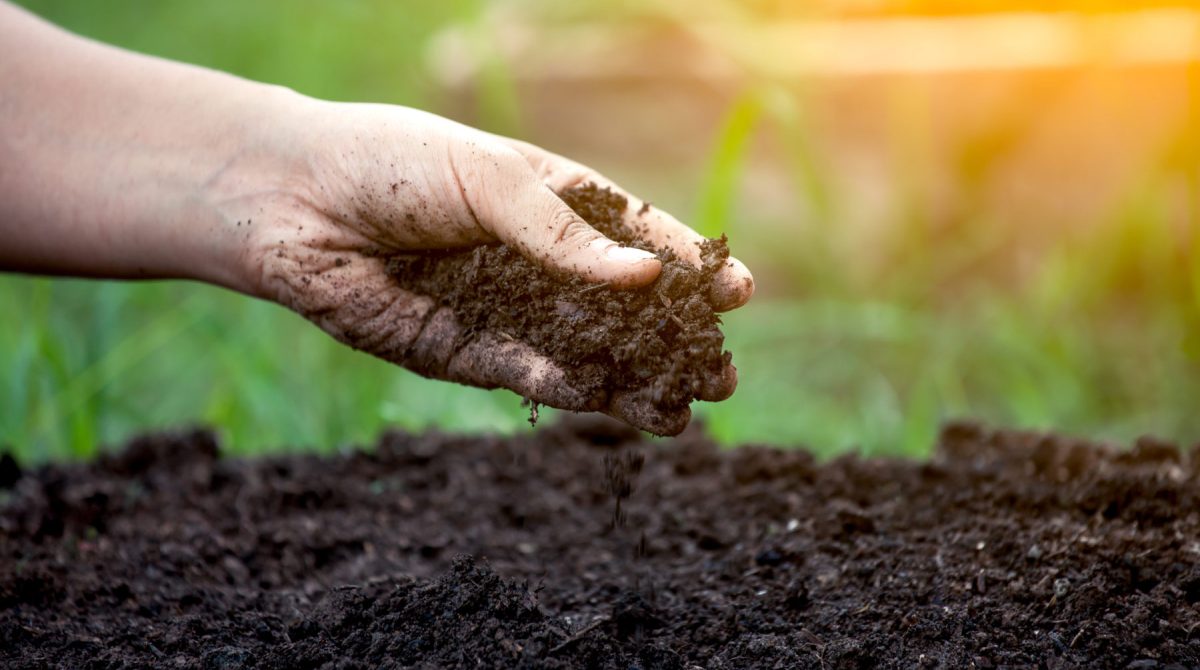
Date August 16, 2022
Healthy soil provides the right conditions for growing strong, vigorous plants that can resist pests and diseases. Soil conditioners are a great way to improve soil quality, making it a fertile environment for tree growth. There are many different types of soil conditioners, each with unique benefits. Understanding their purposes will help you choose which is best for your needs. In this blog post, we’ll discuss the various types of soil conditioners and the role they play in plant health. We’ll also provide instructions on how to condition your soil to promote the health of your landscape.
What are Soil Conditioners?
Soil conditioners or amendments are any substance that can be added to soil to improve soil health, texture, pH, and nutrient balance. It is an effective way to enrich the soil and improve aspects of its quality. They impact these four main aspects affecting plant growth:
- Organic matter is the most important ingredient to soil health as it provides essential nutrients. It promotes biological activity and nurtures bio-diverse sub-cultures, which are critical for plant life.
- Soil structure, also known as tilth, is the physical condition of the soil. This includes whether the soil is clumpy or has proper aeration and drainage. Good soil tilth means stable plant growth, seed germination, and root development conditions.
- Water holding capacity depends on soil type, but certain conditioners can help with drainage and retention.
- Nutrient availability, or the soil’s ability to retain minerals that all plants need.
The first step is to test your soil. Once you know what your soil lacks, you can determine which conditioner(s) will work best to improve soil quality.
Common Soil Conditioners
Organic Matter
- Compost – enriches the soil by increasing nutrient availability and delivering essential plant nutrients: nitrogen, phosphorus, and potassium as food for the plant. Compost also loosens tightly bound particles in clay, silt, or sandy soil so that roots can spread and develop.
- Manure – the carbon content of manure increases microbial biomass and soil respiration by acting as a food source for microorganisms native to the soil. It improves the physical properties of the soil and acts as a fertilizer that enables greater diversity of bacteria, which plays a key role in nutrient cycling and availability.
- Peat moss – dead moss collected from the ground that efficiently retains moisture while improving soil tilth and compaction.
- Coconut coir – a natural fiber extracted from the outer husk of coconuts that can add structure to the soil, improve water retention, and increase resistance to certain diseases.
- Biochar – an organic plant-derived soil enhancement product made from charcoal that is used to encourage healthy living soils and improve nutrient availability for trees. Enhances soil porosity, increases water holding capacity, which helps plants resist drought conditions, and has pores that create space for slow-release food and nutrient storage.
- VITAL Blend Soil Amendments – a soil health blend of Biochar charged with Humate, another plant-derived carbon, used to supply plants with micronutrients and high-energy carbon food sources.
Inorganic Matter
- Vermiculite – a natural mineral that’s formed into lightweight particles, ideal for holding moisture and resistance to mold and diseases while allowing moisture and oxygen flow.
- Perlite – often found in store-bought potting soil and looks like little pieces of styrofoam. It exists in nature as a type of volcanic obsidian glass that has been saturated in water over a long period of time. Volcanic soil is extremely fertile, has a neutral pH, and is naturally porous, enhancing soil drainage.
- Lime – made from ground limestone rock which contains magnesium carbonate and calcium carbonate, which increases the soil pH
How to use Soil Conditioners
The best time for soil conditioning is before planting and periodically throughout the year. Since soil is alive, it must be fed to provide a nutrient-rich environment for plants to grow. To maintain soil health, you should consider soil conditioning as a process, not a one-and-done solution.
When applying soil conditioners, try your best to work the substance into the soil enough so the microorganisms can break it down and transfer it deeper into the ground. Tilling 4 to 5 inches deep and mixing your soil conditioners at the same depth will help with even distribution.
Depending on your soil health, combining organic and inorganic conditioners can significantly improve soil quality and enhance tree growth. Furthermore, adding fertilizer or root stimulators, like MitoGrow, can work together to support the health and vigor of your plants.
TreeNewal is Here to Help
Our ISA Certified Arborists understand the complexities contributing to poor plant health. We can test your soil to determine the best way to restore soil quality and provide the best techniques and soil enhancement blends to revitalize your soil and the health of your trees. We believe in using quality, eco-friendly enhancements made from organic matter to enrich the soil sustainably. We also provide a variety of tree care services, including tree nutrition, aeration, tree pruning, and more, to encourage healthy, strong, and resilient trees. Contact us today to get started!
If you need tree care advice or assistance, contact TreeNewal to enjoy tailored Certified Arborist tree services today.
To learn more about How to Condition Soil for Better Plant Growth?, call our Argyle and Southlake-based teams
at (817) 592-6846 or send us a message.
We’re a little different than the average tree services company.
Learn more about TreeNewal’s ISA Certified Arborists!
Our Dallas/Fort Worth-based tree doctors can explain how sustainable tree care services add more value to your bottom line.
Healthy trees, healthy lives.








